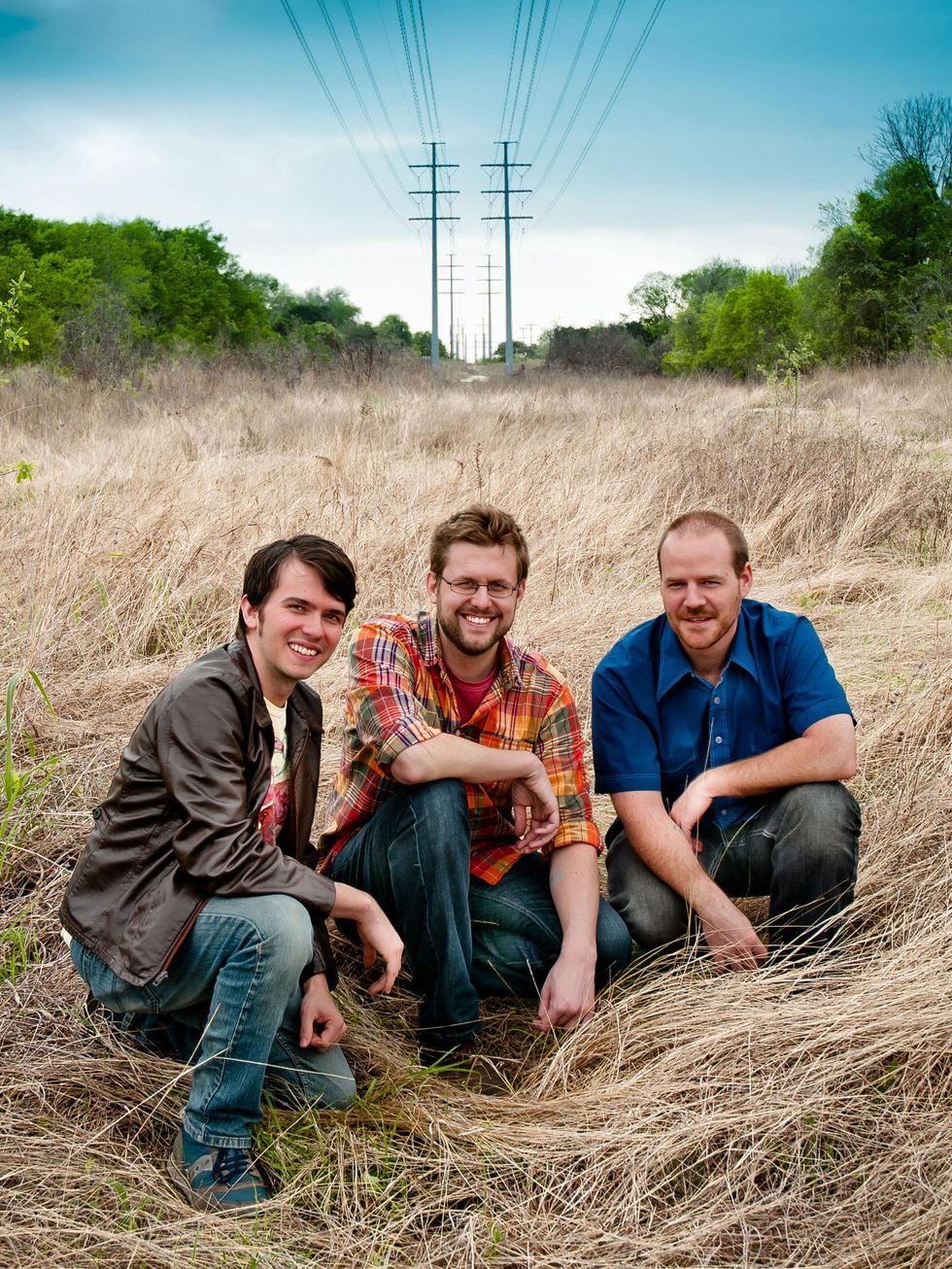Contemporary Sounds
Music marathon: Fast Forward Austin celebrates cutting-edge, classical music
Robert Honstein, Steven Snowden Iand Ian Dicke are the founders of the young, successful, contemporary classical music festival Fast Forward Austin. They are also all very talented composers in their own right, who met while pursuing doctorates in music composition at the University of Texas at Austin.
According to the Fast Forward Austin website, the showcase provides "an eclectic mix of cutting-edge, genre-bending music that fearlessly straddles the borders of pop, classical and experimental music."
CultureMap sat down with the three founders of FFA and asked them a few questions about the organization and the upcoming 2013 marathon event taking place Saturday, April 6 at the Scottish Rite Theater.
CultureMap: What is the FFA genesis story? Where did the idea come from and what brought the three of you together?
Robert Honstein: I think the first spark of an idea for FFA came when Ian went to the Switchboard festival in 2007. Switchboard is a kind of DIY marathon event in San Francisco that features genre mixing, experimental music coming from both classical and non-classical traditions. I distinctly remember Ian returning, already, with possible names for an Austin version of Switchboard.
The idea didn't really fully form until 2010 when Steve, Ian and I started talking seriously about presenting "our" kind of music in a fun and accessible way. I think we all felt there was a need in the community to bring together a bunch of different strands of music in a laid back setting. We decided that we'd just give it a shot, and FFA was born.
CM: What have been some challenges you've encountered along the way to creating a music festival?
RH: I think the biggest challenge has been logistical and organizational. FFA is an eight-hour marathon, so basically it has all the challenges of a normal concert, multiplied by four. For various reasons Steve, Ian and I are all out of Austin this year, but surprisingly that hasn't been much of a barrier. So much of the organizational work is through email, Skype and Google Hangout, that being away hasn't really been a problem.
Fundraising is, of course, always an issue. We feel very strongly that ticket prices must be low because it's part of our mission to reach as much of the community as possible. This means it's basically impossible to cover all of our costs through ticket sales alone. I think this is pretty typical for presenters of more experimental music. We make up for this by grants, fundraising and other such things. I don't think we realized going into this how important the development angle would be to sustaining the festival.
On a logistical level, there have been some interesting challenges regarding bringing certain types of ensembles into non-traditional classical music venues. Like, just the nitty gritty production stuff related to, say, amplifying an 18-piece ensemble in something like "Music for 18 Musicians," or figuring out how to fit a truck full of percussion on stage for the big Xenakis and David Lang pieces Baylor Percussion did last year. But those kinds of challenges are part of the fun!
CultureMap: For a festival that's only been around since 2011, you're already pulling in big names and big crowds. What do you think are some of the factors that have contributed to your skyrocketed success?
Steven Snowden: First off, It's very flattering to hear you say that. We spend so much of our time focusing on all of the logistical details that it's easy to forget to step back and take a look at how far we've come in the past few years. Though I have to admit that it still feels like a pretty small operation compared to the many huge and well-established festivals in Austin. Robert, Ian and I have put a great deal of work into FFA, but there's no doubt that we wouldn't be able to do this without a lot generous help from folks in Austin and elsewhere.
In terms of brining in audiences, I think a lot of it has to do with the concert-going culture that already exists in Austin. Simply put, people like to spend their free time taking in live music, more so than in many other parts of the country. On top of that, we've found that Austinites are often quite eclectic, curious, and adventurous in their listening habits. They're not afraid to take a chance on an unfamiliar artist or style of music because they want to explore less-visible aspects of Austin's music scene.
Part of that also has to do with the way we program artists for FFA. We make it a point to have a very wide variety of music throughout the day as well as a balanced mix of artists from Central Texas and other parts of the country. Quite often, that means that folks will show up to hear some of their favorite local musicians and then stick around to hear a performance that they wouldn't necessarily seek out otherwise. In this way, we hope to introduce them to unfamiliar sounds and styles.
CM: How do you decide which artists to bring in? Is there something in particular you are looking forward to?
RH: In terms of choosing artists for the festival we try and balance a lot of concerns. We want something new, something compelling and we want to create a balanced but diverse program. We're interested in juxtaposing a lot of different styles throughout the day. We're also interested in creating a good mix of local and national artists. FFA is a kind of melting pot for all these different factors. Basically, using those general guidelines, the actual programming comes down to Steve, Ian and I reaching out to artists we think will make a great show.
This year does look pretty awesome. I would hate to single out one thing because I'm so genuinely excited about every single artist, but I do think the UT Percussion Group performance of "Music for 18 Musicians," by Steve Reich, deserves a special shout out. Apparently (and this is according to the publisher, Boosey and Hawkes), [it] has never been performed in Austin, which is totally unbelievable to me. So, we're pretty thrilled to present the first ever performance of this monumental work in Austin.
CM: What do you think this year's performances will have in common? Is there a 2013 FFA theme emerging or is it just more of a pleasant juxtaposition?
Ian Dicke: Musically, I think it’ll be a fairly diverse showing. If there are any similarities between the artists we invite, it is in their do-it-yourself approach to audience building. Many of our artists release records online, apply social media promotional marketing strategies on Twitter, and are comfortable playing in formal concert halls or noisy downtown bars: all at the highest level of musical artistry. These groups embody the new model emerging in the contemporary music industry, and we’d like to think that FFA is a destination for these groups to showcase what they do best.
CM: How do you think your identities as composers have informed your decisions as curators?
SS: The short answer is that we try not to let our individual identities (and tastes) as composers get in the way of what is best for the festival. However, the very fact that we are composers does play a large part in our broader goals as curators.

